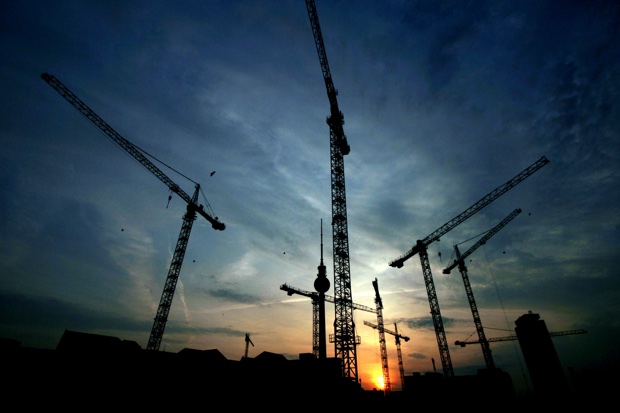Iran uses cranes to hang citizens for offences such as ‘waging war against God’ and ‘crimes against chastity’. These cranes are often made in Europe.
Now, with sanctions against the Iranian regime lifted, European companies are are clamouring to get back into the Iranian market. The CEO of the Austrian construction giant Palfinger last week called Iran a ‘promising market’. But after a human rights group in Vienna released a photograph of an Iranian dangling from a Palfinger crane, the company quickly backtracked on that statement.
As Amnesty International noted last month, ‘Iranian authorities are believed to have executed an astonishing 694 people between 1 January and 15 July 2015.’ The number is expected to climb to more than 1,000 by year’s end.
A Wikileaks British dispatch from 2008 revealed that Iran had executed 4,000 to 6,000 gays and lesbians in the three decades since the 1979 Islamic revolution. Given the country’s opaque penal colony system, it is impossible to determine how many gays and lesbians were hanged by Western cranes. But given Iran’s reliance on European construction equipment, it stands to reason that some were.
It’s not just construction. The telecoms giant Nokia exemplifies the financial risks and reputational damage Iran poses to European firms. In 2008, the then-joint Finnish-Germany venture Nokia-Siemens sold Tehran advanced surveillance technology. After Iranians flooded the streets in 2009 to protest the country’ fraudulent presidential election, the government used the systems to disrupt demonstrators’ Internet, Twitter and mobile communications, leading to a grassroots campaign for a consumer boycott of Nokia-Siemens.
Siemens does not seem to have been put off: company representatives were part of the delegation accompanying German Economic Minister Sigmar Gabriel to Tehran last month.
The charge to rekindle business relations with Tehran is led largely by left-leaning politicians like Gabriel Heinz Fischer, the social-democratic president of Austria, who announced his intention to visit Iran – accompanied by a large business delegation – even before the Iran deal was reached on July 14. France’s socialist foreign minister Laurent Fabius visited Tehran last month and laid the foundation for a follow-up visit from a delegation of nearly 100 French company executives. Iranian spokesman Mohammad-Bagher Nobakht said Tehran may even buy French-made Mirage warplanes.
The British are getting in on the act too. The former foreign secretary Jack Straw led a parliamentary delegation to the Islamic Republic last year in which he waxed lyrical about the election of the supposed moderate Hassan Rouhani as president in 2013. ‘The consequences of Mr Rouhani’s victory cannot be overstated. There’s a lightness in the air.’ He said ‘Tehran looks and feels these days more like Madrid or Athens…’
The truth is that Rouhani’s tenure has resulted in a spike in executions. According to the UN, capital punishment has risen 16 per cent since the presidency of his firebrand predecessor Mahmoud Ahmadinejad. The United Nations Special Rapporteur on human rights in Iran, Dr. Ahmed Shaheed, urged Iranian authorities Thursday to immediately commute the death penalty recently of a well-known author of alternative medical theories –convicted of ‘spreading corruption on Earth.’ There are nearly 100 Christians currently imprisoned on account of their faith, according to Shaheed.
The raison d’etre for business is profits, but Iran’s mission is to serve as an engine of perpetual revolution at the expense of Western interests and power. Surely European businesses should think twice before re-investing in the Islamic Republic?
Benjamin Weinthal is a research fellow at Foundation for Defense of Democracies. Follow Benjamin on Twitter@BenWeinthal






Comments